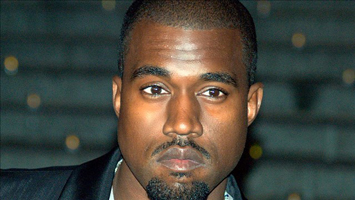Defending Kanye West
By Richard B. Muhammad -Editor- | Last updated: Oct 17, 2018 - 2:18:54 PMWhat's your opinion on this article?

Kanye West
|
But there is more to the Oct. 10 encounter between a president largely reviled by Blacks and the outspoken rapper who said on live tv, “George Bush doesn’t care about Black people,” over the disastrous federal failure in New Orleans during Hurricane Katrina.
The Honorable Minister Louis Farrakhan touched on one of these points Oct. 14 during a major address in Detroit to mark the 23rd anniversary of the Million Man March and Holy Day of Atonement. “Let me talk about Kanye. I’m not one of these beat-a-man-down kinds of guy. I happen to love Kanye,” said Min. Farrakhan. “Kanye talked about the 13th Amendment and he was telling Mr. Trump that you don’t build something that is supposed to be firm and have a trap door in it unless you’re building a trap door for somebody that you want to trap. I’m going to help Kanye out with this.
“The 13th Amendment is a trap. White folks say, ‘okay, slavery is finished unless you commit a felony. Then all your rights as a citizen are gone.’ That’s a trap door. You got a little reefer on you, in one of these states that they don’t like you having reefer in your possession? Stop and frisk? That’s getting to the trap door. You are in prison working for Fortune 500 companies. But when you come out of prison you can’t get a job at none of these companies, but in prison you were working for nothing. That’s a new form of slavery. Kanye was right,” he said.

Jamal Khashoggi
|
Another incredibly important message came from the Minister during an early morning meeting and conversation on Oct. 15, where he made exquisite observations worthy of a great deal of thought.
In speaking of Kanye West and Jamal Khashoggi, the Saudi Arabian reporter who is missing and believed dead as a target of the Saudi government, Minister Farrakhan said every person has a right to think and write as they please. They have a right to say disagreeable, even offensive things and this right should not be interfered with. It should especially not be met with violence. Even Salman Rushdie who spoke against the Prophet Muhammad, peace be upon him, and was subjected to a fatwah, or religious death sentence, had a right to freedom of expression. God will ultimately be his judge.
As social beings, human expression of thoughts and ideas should not be curbed, but explored. If people can be allowed to think and say what they think, it offers social beings opportunity for dialogue. The Bible says, come let us reason together.
If we can truly hear one another, critique one another with strength but with civility, we can get a better understanding of one another.
If we act otherwise, for example, if the Saudi government is guilty of the killing of the journalist, who was a critic of the kingdom, heavy prices will be paid. The Arab kingdom could face an ugly global backlash.
Discussion and dialogue offer a positive outlet for passions, thoughts and ideas. To that end, I would like to offer some observations about Kanye’s soliloquy.
Though we may have not have liked violation of White House decorum, we should remember that behind the pomp and circumstance, photo ops and targeted messaging, the murders of leaders and the destruction of nations have been plotted in the White House. Perhaps we should be less upset about violations of protocol and more concerned about dirty business conducted in the name of the American people.
I humbly submit if you have not heard Kanye, in context, the full 20-minute meeting, you have not fully heard him. He covered some important ground and many are starting to put more focus on his content and less on his stream of consciousness delivery.
Among his remarks: Larry Hoover, the founder of the Gangster Disciples street organization, should be freed. He was a voice apart from the establishment but he has influence and was trying to do good things in Chicago.
There is an expectation that Blacks must be Democrats, wooed by social programs as there are not enough jobs in the inner city. But joblessness leads to criminalization and coupled with the evisceration of services has helped devastate Black neighborhoods.
Inner city investment is needed, in particular, in Chicago, to create a higher standard of living. America needs reinvestment and revived manufacturing, which includes bringing companies like Adidas back to build city factories.
Too much political acrimony and too many attacks on Donald Trump don’t help the country, if he fails the country fails. We need to try to find common ground. Education needs to be revamped and expanded. Legendary athlete and longtime activist Jim Brown of Amer I Can has a curriculum to change lives. Larry Hoover has a curriculum to change lives. There is Montessori education to help students learn.
Blacks need an understanding of the power of “land ownership” over “brand ownership.” When you don’t own, or have land, you incline to brands for a sense of worth. A new vision and a new thought about leaders and leadership, including Larry Hoover and others, is needed.
While Blacks may have disdain and even hatred for President Trump, which he has fed, we should not be like Pavlov’s Dog whenever Mr. Trump is mentioned. President Clinton dropped bombs in Africa, cut welfare reform and never delivered on promises of education and child care and pushed mass incarceration that helped decimate Black neighborhoods. Yet, he is still applauded and welcomed by Black audiences.
If Blacks can be in the same room with the Clintons, seeking resources and solutions to problems, perhaps we should sit with Kanye. Perhaps his perspective could be sharpened by engagement and not condemnation. Perhaps he could benefit from public dialogue and not public derision. Our brother is a force and is seeking something and seeking to do good. Come, let us reason together.
—Richard B. Muhammad, The Final Call Newspaper
INSIDE STORIES AND REVIEWS
-
-
About Harriett ... and the Negro Hollywood Road Show
By Rabiah Muhammad, Guest Columnist » Full Story -
Skepticism greets Jay-Z, NFL talk of inspiring change
By Bryan 18X Crawford and Richard B. Muhammad The Final Call Newspaper @TheFinalCall » Full Story -
The painful problem of Black girls and suicide
By Charlene Muhammad -National Correspondent- » Full Story -
Exploitation of Innocence - Report: Perceptions, policies hurting Black girls
By Charlene Muhammad -National Correspondent- » Full Story -
Big Ballin: Big ideas fuel a father’s Big Baller Brand and brash business sense
By Bryan Crawford -Contributing Writer- » Full Story






 Click Here Stay Connected!
Click Here Stay Connected!








